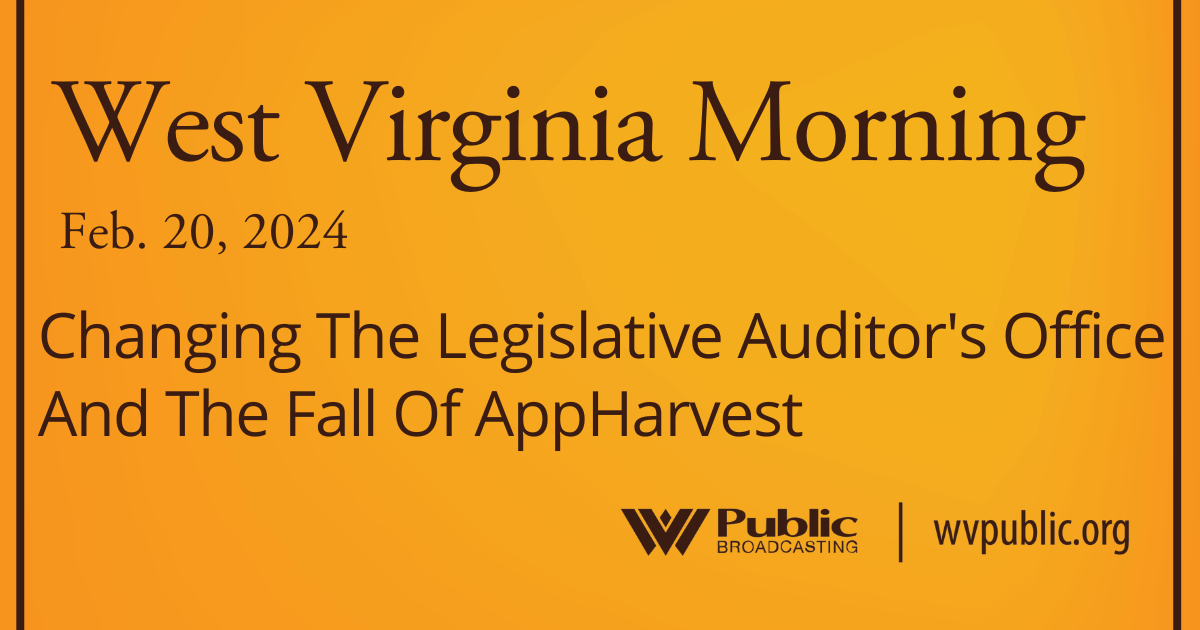On this West Virginia Morning, eastern Kentucky’s AppHarvest was called the future of farming and a way to bring new jobs to coal country. But as Inside Appalachia’s Mason Adams explores, the company fell nearly as fast as it rose and filed for bankruptcy last year.
Also in this show, in our most recent episode of The Legislature Today, bills in both the House and the Senate would change the way the legislative auditor operates. Randy Yohe spoke with Del. Mike Pushkin and House Speaker Roger Hanshaw about the office, which has long been a watchdog of the executive branch of government, making sure that money is spent properly.
West Virginia Morning is a production of West Virginia Public Broadcasting, which is solely responsible for its content.
Support for our news bureaus comes from Shepherd University.
Listen to West Virginia Morning weekdays at 7:43 a.m. on WVPB Radio or subscribe to the podcast and never miss an episode. #WVMorning
